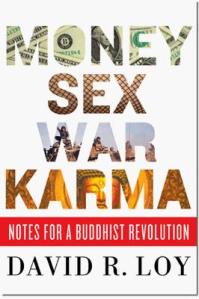Hey all, so we had a great and groovy day-long meditation retreat at the I.D. Project with almost 40 brave and intrepid souls on Saturday. If anyone has nothing to do July 11-18, and wants to come with me to Karme Choling Meditation Center in Vermont, I’ll be leading a meditation retreat up there, which is getting pretty full as we speak.
In other news, fellow One City blogger Eva and I almost finished our petitioning to get on the ballot for Brooklyn Democratic Country Committee on Sunday. Look out political world, here comes the One City crew!
So…I was asked to write about why I don’t like most Buddhist books. Someone found this odd, since I wrote a Buddhist book, albeit one that I tried to make as different as possible from a traditional Dharma book by incorporating some media and political perspectives.

I think I was forced to fail in this endeavor, because the market and publisher wanted a neo-dharma book (the editors at Wisdom were super-great by the way). I have to say that I engage in many forms of writing that make me feel better than writing a dharma book (This blog, poetry, and the novel i am desperately attempting to finish a rewrite of by summer’s end).
So what is it that makes me feel sort of lame to be part of the Buddhist book genre? It’s nothing I can easily put my finger on. Maybe it’s that I feel most publishing of Buddhist books blurs too easily with self-help and speaks to a very narrow demographic (book-buying) segment of the human population which then becomes quite clearly reflected in the participants in a meditation retreat (not that I don’t LOVE that group of people, but it isn’t the only group I love).
I am way more intrigued by things that apply Buddhist-ish principles to other disciplines, like narrative, poetry, film, ecology, politics, etc, as long as they don’t tell you that that’s what they are doing.
Don’t get me wrong, there are very many rigorous academic texts which are SUPER helpful for scholarly study. And a lot of writers from other genres are Buddhists and either don’t know it or say it (which can also be problematic when someone is pushing watered-down Buddhist wisdom in the name of cultural relevance – see this review of One City for the details). But I guess the typical dharma book, meant to reach a wide audience in an introductory way, just seems old and stale to me by now. I mean, I love Pema Chodron as much as the next sensitive man in touch with his Shenpa, but at this point the market seems saturated with a new book or audio tape from her every several months, and they fail to differentiate. How many photos of a leaf on a pond can one man take?
Without a doubt, the hardest thing about writing a Buddhist (or Buddhist-inspired) book like One City is navigating the voice. How experiential do you make it, how pedagogical do you make it, how do you speak to readers without leading them on or assuming too much or making them want to put long fingers down their throats? This process of voice-crafting made me want to puke (gently) a few times during the several drafts of One City. The voice is the trickiest and often most gag-inducing part of reading dharma books in my mind. Anyway, that should give you guys a bit to discuss.
And now, without further ado, a few dharma book awards from moi in categories that you may not’ve known existed, and a few books that need to be written asap.
AWARD FOR BUDDHIST WRITER WHO BEST UNDERSTANDS POSTMODERNISM
David Loy (Money Sex War Karma pictured above)
MOST ACCESSIBLE BOOK TO DEMYSTIFY BUDDHIST CONCEPT OF EMPTINESS
The Heart of Understanding: Commentaries on the Prajnaparamita Heart Sutra
by Thich Nhat Hanh
BEST BUDDHIST MEMOIR (TIE)
Dragon Thunder by Diana Mukpo
Dharma Punx by Noah Levine
MOST ANNOYING BOOK BY A TIBETAN LAMA
What Makes You Not a Buddhist by Dzongsar Jamyang Khyentse
BUDDHIST BOOK TOPICS THAT SHOULD BE WRITTEN NOW!
-Dharma from a Queer Perspective (Cassmaster???)
-A Dharma Book by a Young Female Teacher (and by young I don’t mean 47, although I know many 47 year olds who are young at heart)
-A Handbook for Mindful Activism (not one that says your practice is in and of itself revolutionary. I’m on this topic, but I won’t finish for about five years)
More from Beliefnet and our partners
